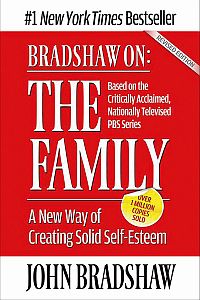
The Rag and Bone Shop: how we make memories and memories make us
Veronica O’Keane (Allen Lane, £20)
This is set up as a book of two halves, written by a practising psychiatrist. Part one, ‘How we make memories’, explores the raw ingredients, including the ways we make sense of place and experience, how we understand time, and how (and why) we remember and forget. It’s interesting and informative, drawing on brain anatomy and process in a way that’s accessible to readers with no medical background. The simple line drawings make the complicated function of the brain seem fathomable, and O’Keane is a good teacher. The nuts and bolts of how memory functions are brought to life with case studies from her own work and with reference to literature. She challenges psychoanalytic theory, such as Freud’s ‘so-called talking cure’, and states that his diagnosis of Anna O (hysteria) ‘… could have been accounted for by tubercular meningitis’. I didn’t mind the bedrock of my chosen modality being challenged; it’s good to reflect on our beliefs.
With ‘the science bit’ under my belt, I was looking forward to part two on ‘How memory makes us’, with chapter headings such as ‘Self-recognition’, ‘A sense of self’ and ‘The shifting narratives of life’, which sounded tantalising to my psychotherapist’s ear. But what I discovered felt like more of the same – more science, including an exploration of the function of sex hormones and of the prefrontal cortex; more case studies with a medical slant towards ‘severe and enduring mental illness’, including delusions, psychosis, psychopathy and schizophrenia; and more Freud-bashing, with the author describing him as the inventor of befuddling concepts and suggesting that Freudian techniques ‘developed into a monster’. Prepare to be challenged.
Jeanine Connor is a child and adolescent psychotherapist
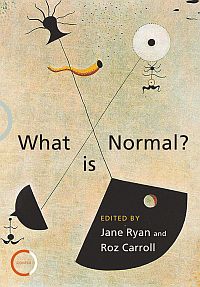
What is Normal? Psychotherapists explore the question
Roz Carroll and Jane Ryan (eds) (Confer, £19.99)
This essay collection is dedicated to the memory of Lennox K Thomas, pioneer of intercultural therapy in the UK, who died in 2020. In his own contribution, Lennox remembers Paulina, his ‘anything but normal’ great-grandmother who, as a black Jewish suffragist active in Grenada in the early 20th century, stood out by seeking to help make the social world anew. His family’s example, including Paulina’s political consciousness and principled defiance of norms, inoculated the young Lennox against the worst emotional effects of racism during his later childhood in the UK, by giving him a place from which to evaluate and judge such experiences. Why would anyone settle for norms that are limiting and oppressive?
If race and ethnicity is one powerful theme, other strands include asking ourselves what the ‘new norms’ should be, post COVID, in the light of our ongoing climate catastrophe, and in a landscape in which gender and sexual identities are increasingly in flux. Other essays in this collection invite us to critically interrogate a situation in which previously ‘normal’ emotional experiences (‘ordinary unhappiness’, to use Freud’s phrase) are increasingly medicalised and medicated. Other contributors invite us to address the more philosophical task of relating social norms to sociopolitical power – radical psychiatrist RD Laing and psychotherapists Winnicott and Melanie Klein are discussed, as are the philosophers Rousseau and Hobbes.
Well-equipped with notes and bibliographies, this feels like a solid and scholarly piece of work. With its life-affirming personal testimonies – Lennox’s, but also, notably, Valerie Sinason’s account of working with adults with profound disabilities – it could also help equip us with what Antonio Gramsci called ‘optimism of the will’.
David Curl is a counsellor in private practice in Somerset
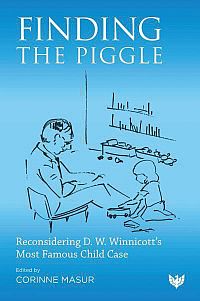
Finding the Piggle: reconsidering D.W. Winnicott’s most famous child case
Corinne Masur (ed) (Phoenix, £28.99)
A magnificent seven eminent therapists offer us their own interpretations of DW Winnicott’s ‘most famous child case’, each one very different from the others. It was a joy to read every perspective and a treat to have the opportunity to follow the thinking of these therapists. It is a rare book that feels like it has always existed.
Chapters one and two are essential reading. In the first, Deborah Anna Luepnitz uses Winnicott’s case notes to introduce (or reintroduce) us to the case and context of the child known as Piggle, and she surprisingly introduces us to Gabrielle, the adult that Piggle became. In chapter two, the wonderful writing of Brett Kahr feels like reading a short mystery-drama, as he delves into his investigation of ‘The Piggle Papers’ archive. Here we not only get insights into the case, but also a real sense of Winnicott the person, of his work commitments, important incidents and an insight into his personal life. These introductory chapters set the scene for the contributions of the other authors, which can be enjoyed in any order without losing impact. Each one is deserving of its own review.
Winnicott’s famous legacy is kept alive by these great thinkers. I can imagine him sat at a dinner table with the contributors, discussing their thoughts, if his busy diary had allowed it. There is inevitably some repetition of the case history as each author introduces their own insight, but due to the individuality and easy quality of writing in each chapter, this doesn’t annoy. There are valuable theoretical and imaginative insights here that will entertain and educate therapists of all persuasions.
Gavin Conn is an integrative counsellor in private practice in London
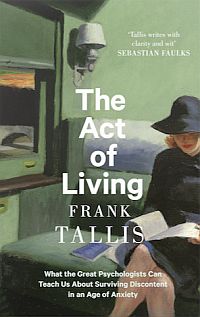
The Act of Living
Frank Tallis (Little Brown, £18.99)
How does it happen that, despite advances in science, technology and material wealth for many people in Western countries, levels of anxiety, depression and mental health issues are more widespread than ever? Tallis attempts to provide some answers by examining perspectives from many therapeutic approaches and models of the mind: from Freud, Jung and Adler in the 19th century to Eysenck, Ellis, Beck and the behaviourists in the 20th, and via the humanism of Maslow, Rogers and Frankl to the neuroscientific insights of today. Tallis does not advocate therapy for all, but stresses the insights gained from these approaches could be integrated into our current ‘fact-based’ education system. His strongest emphasis is not on how to change our thoughts and feelings, but how to accept them and find our own meaning through ‘the act of living’.
For me, a very important aspect of this clear and readable book is the way Tallis brings past psychotherapeutic concepts up to date. In the 1960s, RD Laing, a radical ‘beatnik’ therapist, stipulated the need to reconcile the disparate elements of our personalities to heal ‘the divided self’. Today, false and aggrandising online self-images and ‘selfies’ could be said to symbolise split identity and narcissism rather than healing.
This book offers a valuable, accessible, overarching view of some of the significant thinking of psychotherapists throughout the centuries. I like the way Tallis illustrates concepts with reference to modern art, music and poetry. Naturally, the wide range of thinking that he has tried to cover must involve some omissions. However, this book is a useful introduction or ‘taster’ for the lay reader, new student or practitioners who wish to revise and reflect on our knowledge.
Val Simanowitz is a counsellor, supervisor and ex-trainer
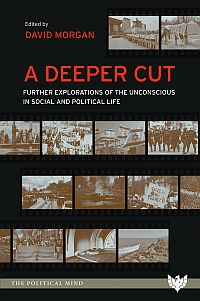
A Deeper Cut: further explorations of the unconscious in social and political life
David Morgan (ed) (Phoenix, £29.99)
After a morning seeing clients, I switch on the news. My capacity for reflective thinking, so attuned a few minutes earlier, evaporates as I listen to today’s political events. My mind glazes over as, unthinkingly, I am drawn into the split and blame game. This book, the second to emerge from the political mind seminars by the British Psychoanalytic Society, invites us to pay attention to unconscious process at the forgotten, collective level. It is broad-ranging, with chapters on racism, religious fundamentalism, the psychology of whistleblowers, the emergence of populism, street gangs, trade union activities and mental health services. I was particularly moved by a chapter on the politics of NHS psychiatry and a powerful piece on the move to community care for the long-term mentally ill; both cases illustrating the huge costs of the denial of serious disturbance and dependency.
In every chapter the focus is on finding a ‘deeper cut’, looking under the surface at past traumas enacted collectively, whether that be the colonising gaze, the universal dominance of parents over children as exposed in the work of Alice Miller, or the unconscious dynamics of social media in the rise of the new right. The contributors unite around their criticism of neoliberalism, reminding us that there is no such thing as a ‘free’ market – it is always political and involves an abuse of power. I highly recommend this book; it has helped me to keep thinking while listening to the news, to recognise projective patterns in political events, to value complexity over splitting, and, above all, to treasure negative capability – the capacity to tolerate uncertainty.
Jane Cooper is a former senior counsellor at the University of Cambridge
Next in this issue
